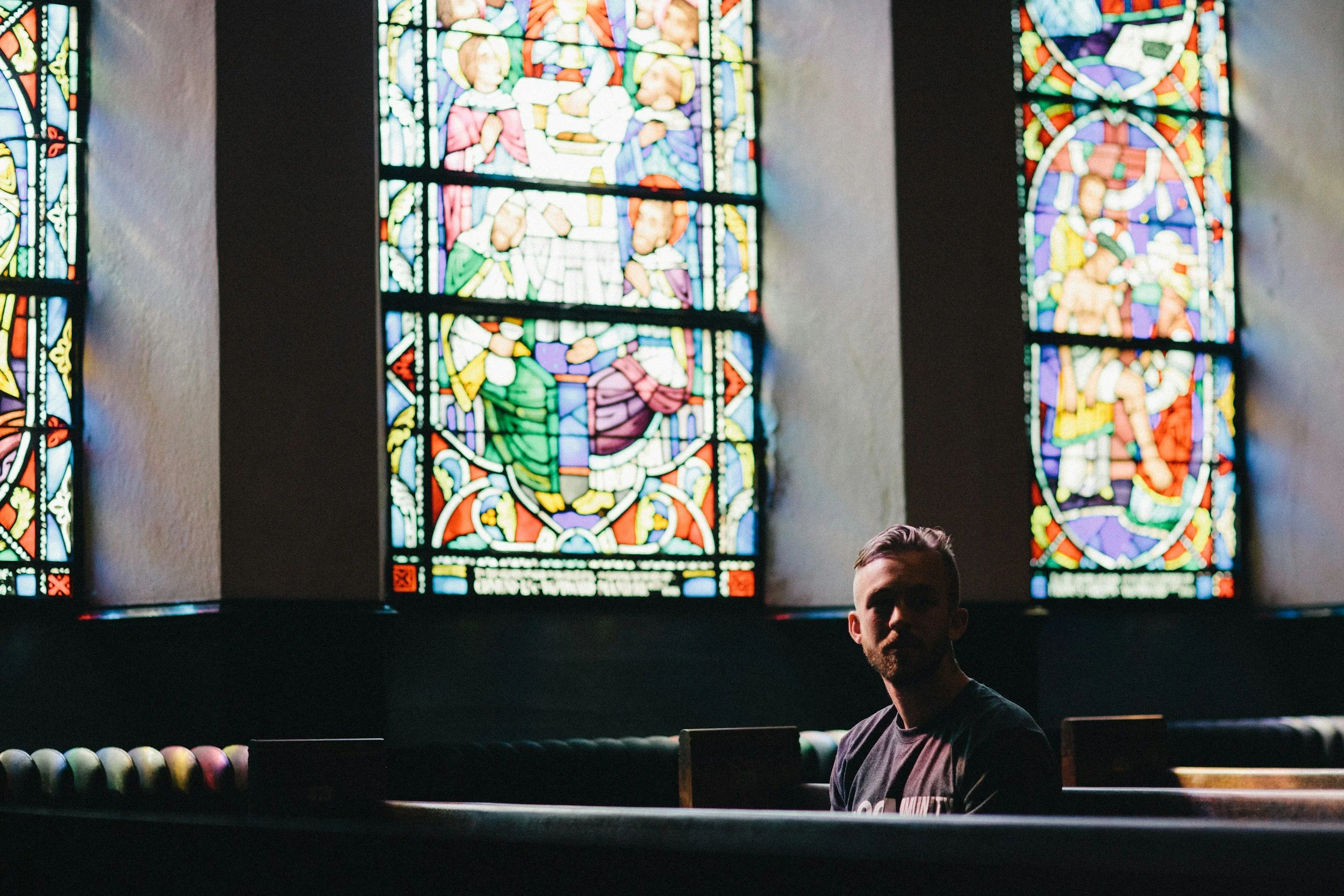Understanding Spiritual Abuse in Christian Communities
Spiritual abuse is an often-overlooked yet profoundly damaging form of harm that occurs within faith communities. It involves the misuse of spiritual authority—by pastors, church leaders, or trusted mentors—to manipulate, control, or oppress others. Tragically, this type of abuse is frequently cloaked in the language of righteousness, leaving survivors confused, wounded, and questioning their faith.
In Christian contexts, spiritual abuse not only affects individuals emotionally and relationally but strikes at the very core of their spiritual identity. Survivors may find themselves struggling to reconcile their experiences with the teachings of Christ, questioning their relationship with God, and feeling isolated from their faith communities.
This article explores the complex dynamics of spiritual abuse, offering insight into how to recognize its signs, recover from its trauma, and implement safeguards to prevent it in Christian communities. By addressing this issue with honesty and compassion, we can pave the way for healing and ensure that our faith environments reflect the love, grace, and freedom found in Christ.
Please note: This article is not an exhaustive description or explanation of spiritual abuse or trauma, and it might not reflect your personal experience. As people working in the field of Christian counselling and trauma therapy, we recognize the (unfortunate) diversity of pain within and outside of our Christian communities. As I’m writing this, I am also aware of the limitations of language and the use of a “blog post” format to share this information. If the words of this post do not resonate with your unique experience, we want you know that we see you and hear you too—your experience and pain matter too. Our team would be glad to connect with you to listen, grieve, and offer support and guidance if that feels helpful.
What Is Spiritual Abuse?
Spiritual abuse is a deeply painful experience that occurs when someone in a position of spiritual authority—such as a pastor, church leader, or trusted mentor—uses their power to manipulate, control, or harm others. This abuse can manifest in various ways, from manipulative prayers that exploit vulnerabilities to the use of fear or guilt to enforce compliance. Tragically, spiritual abuse often hides behind the guise of “righteousness,” leaving survivors confused and questioning their faith.
Spiritual abuse differs from other forms of abuse because it directly attacks the core of an individual’s spiritual identity. For Christians, this can mean a distortion of their relationship with God, their faith community, and even their understanding of themselves. Recognizing the signs of spiritual abuse is the first step toward healing and prevention.
Recognizing the Signs of Spiritual Abuse
One of the most challenging aspects of spiritual abuse is its subtlety. Here are some common signs to watch for:
Abuse of Power
When spiritual leaders misuse their authority, they may act as though their word is infallible or claim a “special connection” to God to justify their actions. Some church governance structures or ecclesiologies may even promote these kinds of unhealthy and unbiblical relationships. This can create a dynamic where questioning leaders or people in positions of power feels equivalent to questioning God.
Manipulative Prayers
Prayers that are weaponized to control or shame individuals are a hallmark of spiritual abuse. For example, a leader might pray in a way that suggests God’s disapproval of someone’s choices, leaving them feeling trapped or condemned.
Spiritual Bypassing
This occurs when complex emotions or legitimate concerns are dismissed with spiritual platitudes like, “Just have more faith,” or “God doesn’t give you more than you can handle.” While these phrases may seem encouraging to some, they often devalue one’s experience of pain and discourage genuine healing.
Inducing Fear or Guilt
Spiritual abusers often use fear and guilt to control others. This might look like threats of divine punishment, exaggerated consequences for disobedience, or isolating individuals from their support systems under the pretense of “protecting their faith.”
Confusion and Doubt
Survivors of spiritual abuse frequently feel confused about their negative experiences because their emotions are not aligned with the beliefs they hold about their church, the leaders involved, and themselves. This dissonance may lead to doubt of their worth, questions of their relationship with God, or struggles to reconcile their experiences with the teachings of the Bible.
Recovering from Spiritual Trauma
If you’ve experienced spiritual abuse, healing is possible, though it may take time. Here are some steps to help you recover:
Acknowledge the Pain
One of the first steps to healing is recognizing that what happened to you was wrong and that it’s okay to feel hurt. Spiritual trauma often carries a deep sense of shame or self-blame, but you are not responsible for the harm inflicted by others.
Seek Trauma Therapy
Finding a qualified therapist, particularly one experienced in spiritual trauma or clergy abuse, can be a lifeline. Trauma therapy provides a safe space to process your experiences, rebuild trust, and explore your spirituality in a healthy way.
Rediscover Your Faith
Spiritual abuse can distort your understanding of God and faith. Take time to rediscover what faith means to you personally. This might involve exploring Scripture independently, finding a supportive faith community, or engaging in spiritual practices that bring peace and connection.
Set Boundaries
Learning to set healthy boundaries is crucial. This may include distancing yourself from individuals or environments that contributed to your harm, even if it means leaving a church or group.
Lean on Supportive Relationships
Healing is not something you have to do alone. We are made for connection, and moments like these are when we need supportive relationships the most. Trusted friends, family members, or new faith communities can provide encouragement, validation, and companionship as you navigate your journey.
Preventing Spiritual Abuse in Christian Communities
Preventing spiritual abuse requires intentionality and accountability within Christian communities. Here are some practical steps to consider:
Cultivate Accountability Structures
Churches and organizations should establish clear accountability systems to prevent leaders from misusing their power. This includes creating policies for addressing grievances and ensuring transparency in decision-making.
Educate Leaders and Congregations
Training for clergy and church leaders on recognizing and addressing spiritual abuse is essential. Equally important is educating congregants about the policies within a faith community and what healthy leadership looks like.
Encourage Open Dialogue
Foster an environment where questions and concerns are welcomed without fear of judgment. Open dialogue builds trust and helps to dismantle the culture of secrecy that often enables abuse. Consider introducing a “whistleblower” policy that protects employees and congregants from legal action when they report abuse or harassment
Promote Emotional and Spiritual Health
Encourage members to prioritize emotional and spiritual well-being. Providing access to counselling resources, support groups, and spiritual direction can help individuals navigate their faith journeys more healthily.
A Personal Reflection
It’s disheartening to admit, but I’ve encountered a large amount of poor leadership within Christian communities. While not every instance was blatantly abusive, some of my experiences certainly crossed that line. A few years ago, I was part of a ministry that, on the surface, seemed to be doing incredible things in the community. It felt like a privilege to be swept up in what I believed to be the work of God. To be honest, I was vulnerable and naïve, eager to be part of something meaningful.
Within the team, there was this underlying belief—explicitly communicated by the leaders—that “nobody else is doing what we’re doing.” At the time, I didn’t recognize how isolating that mindset could be. It subtly instilled in me a sense of exclusivity, making it seem like if I wanted to do “real” ministry, this was the only place to be. It wasn’t just inspiring; it was binding.
As time went on, the cracks in the façade became harder to ignore. I distinctly remember having a prayer time with the Lord where he spoke very clearly to me saying, “I’m taking off the rose-coloured glasses.” I had no idea what He meant in that moment, but in the coming weeks and months, it started to see my environment through a different lens.
I began to notice the control the leader exerted over the team. Decisions about deeply personal aspects of people’s lives—such as whether they could attend small groups outside our ministry or even who they could date or marry—became subject to the leader’s approval. The more I pushed back, questioning the boundaries and seeking clarity, the more the leader’s demeanor shifted. What started as subtle pressure turned into outright aggression.
Eventually, I realized I wasn’t the first to face this. Stories from others who had left before me began to surface, their experiences mirroring my own. It was a strange mixture of heartbreak and relief. Heartbreak because I saw the pattern clearly, but relief in knowing I wasn’t alone or imagining things.
Still, it wasn’t easy to leave. The leader’s accusations, whispered in moments of confrontation, began to echo in my mind. Was I rebellious? Was I the one in the wrong? But God was faithful. Friends and family who knew me deeply reminded me of the truth of who I am, cutting through the fog of manipulation.
The journey since then has been one of slow, steady healing. Each day, I feel more whole, more free. God has been so gracious to redeem even this painful chapter, allowing me to walk alongside others who are recovering from spiritual abuse. There’s so much hope on the other side, and I’m grateful to be living proof of it.
My story is not unique. It echoes the experiences of countless individuals who have suffered spiritual abuse yet found the courage to reclaim their faith. All of our journeys reminds us that healing is possible and that God’s love is far greater than the harm inflicted by flawed human leaders.
Closing Thoughts
Spiritual abuse is a heartbreaking reality, but it doesn’t have to define your story. By recognizing the signs, seeking help, and taking steps to prevent it, we can create faith communities that reflect the true heart of Christ—love, grace, and freedom.
If you or someone you know is struggling with spiritual trauma, know that you’re are not alone. Healing takes time, but there is hope. Lean on supportive relationships, seek professional help, and trust that your faith can be restored.
At SoulSoothe, we desire to work together to ensure that our churches are places of healing, not harm. Together, we can dismantle the patterns of abuse and build communities rooted in compassion and integrity.




